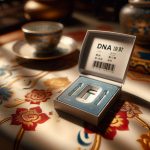Janice M. Sellers is a seasoned genealogist who lends a hand to folks eager to dig into their ancestry. She spills the beans on how she tackles her projects and highlights common pitfalls people should steer clear of in their search for roots.
What led you to pursue a career in genealogy research?
Janice Sellers is at the helm of Ancestral Discoveries, a company dedicated to uncovering family histories. With expertise spanning several areas, she shines in unraveling the genealogical threads of Jewish and Black American ancestries. Additionally, her work extends into forensic genealogy, connecting dots that often have legal implications, and delving deep into historical newspapers for clues.
Boasting 45 years of experience in genealogy, Janice’s journey began with exploring her own roots before turning her passion into a professional pursuit 15 years ago. Her rich background includes roles as an editor, translator, indexer, and publisher. A solid educational foundation in foreign languages (majoring in French with minors in Spanish and Russian) proved beneficial when research crossed international borders.
The blend of Janice’s varied career experiences has seamlessly woven together to support her vocation as a genealogist. Being well-versed in multiple languages aids significantly when research tracks lead abroad. Her skills as an indexer provide her with unique insights into navigating complex databases effectively—a must-have tool for any serious researcher.
A key aspect of Janice’s work today involves integrating DNA analysis into traditional genealogy research methods. As interest in genetic testing surges, she helps clients decipher their DNA results to establish familial connections—determining how closely individuals are related based on shared genetic markers.
In essence, Janice’s role involves piecing together life’s puzzles—ensuring every family story accurately reflects its historical and genetic tapestry. Through meticulous attention to detail and leveraging scientific data alongside historical context, she brings clarity to the complex narratives that make up our ancestry.
How are genealogy and genetics linked or different?
Genealogy concerns tracing one’s direct ancestors, a concept deeply intertwined with genetics. It involves understanding the lineage of genetic material passed down through generations from parents and grandparents. This scientific approach to ancestry forms just one facet of what constitutes family history.
However, family history encompasses far more than mere biological connections. It includes the individuals who played pivotal roles in your upbringing, instilled moral values, and introduced cultural traditions. Whether raised by adoptive parents, foster families, or relatives stepping in as guardians, these relationships form an integral part of your familial identity.
The essence of family transcends genetic ties; it’s about the bonds that unite us with those who shape our lives and futures. Thus, anyone who contributes significantly to our growth and well-being becomes an indelible part of our personal history.
What can researching family history reveal about a person’s life?
Exploring your family tree means diving deeper than just looking at names and relationships; it’s about uncovering the stories of your ancestors. It involves understanding not just who you’re related to but how those connections came to be. This journey through history reveals where your forebears lived, their occupations, and the circumstances that led to you being here today.
On one hand, we have genealogy, which stitches together the fabric of our familial pasts. It’s more than discovering that you’re directly descended from your great-great-grandparents; it’s also about piecing together their lives. Questions like how did members of your extended family interact, or what historical events shaped their existence are central in this quest.
Then there’s genetics, a more straight-laced approach focusing on biological lineage—mapping out who comes from whom and setting up timelines that highlight what ancestors were up to during significant historical moments. This aspect might solve mysteries like how adoptive parents came into the picture or trace back biological ties that tell a story of belonging.
The essence of genealogical research lies in its ability to contextualize these connections within a broader narrative, showing us not just with whom we share DNA but also painting a vivid picture of our collective pasts. For some, especially those adopted, it can redefine notions of family by detailing journeys that brought individuals together under unforeseen circumstances.
Fueled by an inherent fascination with roots and heritage, genealogists often turn detectives—chasing down newspaper clippings or scouring old letters for any hint of ancestral lore. Even something as seemingly trivial as a mention of an ancestor’s unique collection could unlock doors to untold family tales.
This pursuit is more than mere curiosity; it enriches our understanding of self and kinship, bridging gaps between generations and bringing life to names etched in old family trees.
As family tree websites become more popular, concerns are growing about their impact on personal privacy

In today’s digital age, the boundaries of privacy are constantly being tested, especially with advancements in genetic technology. The idea that our DNA can link us to others—and potentially expose us to scrutiny or even suspicion—raises significant concerns about personal privacy. This is particularly true in the realm of forensic genetics, where law enforcement agencies use DNA to solve crimes. The notion that someone’s genetic code could be used without their consent to track down a relative involved in criminal activity is unsettling for many.
Opinions on this matter are sharply divided. Some people see no issue with utilizing available genetic information for solving crimes, believing it serves the greater good. On the flip side, there are those who vehemently oppose this practice, arguing that genetic data is deeply personal and should not be accessed without explicit permission.
The debate continues as society attempts to navigate these murky waters. Arguments swing between championing public safety and defending individual rights to privacy. It’s a complex issue without easy answers.
As we move forward, finding a middle ground seems essential yet elusive. We’re still figuring out how to balance these competing interests in a way that respects both societal needs and personal freedoms. While the destination is currently unclear, what remains evident is our collective journey towards understanding and compromise in this ever-evolving discussion about genetics and privacy.
What current trends or technologies are catching your interest in your field?
Exploring family roots through DNA testing has become increasingly popular, revolutionizing the way people perceive their identities. This groundbreaking approach often brings to light surprising revelations about familial connections, challenging long-held beliefs and narratives. It’s a powerful tool that comes with its own set of warnings: be ready for what you might uncover. The immutable truth of DNA can be confronting, especially when it contradicts stories passed down through generations. Preparation is key; without it, individuals may find themselves grappling with unexpected emotional turmoil.
On another front, the digital age has vastly simplified access to historical records, transforming genealogical research into an often-late-night endeavor that can be done from the comfort of one’s home. However, this ease of access is a double-edged sword. The sheer volume of available data leads some to prematurely connect dots based on coincidental similarities rather than concrete evidence. This rush to judgment could have little impact in some scenarios but bear significant consequences in matters related to legal issues or health histories.
The critical takeaway here is the importance of thorough verification and cautious optimism when diving into ancestry exploration—whether decoding one’s genetic blueprint or navigating through digital archives seeking connections to the past.
How do you believe this issue should be addressed?
Exploring one’s lineage through genealogy can be an intriguing journey, albeit one that isn’t always as straightforward as advertisements might suggest. Companies like Ancestry.com promote the idea of discovering your ancestors with just a simple click. However, this simplicity can sometimes lead to misunderstandings or misconceptions about the actual depth and availability of historical records.
There have been instances where expectations did not match reality, leading to frustration among users. A notable example involves a man from Scotland who challenged Ancestry for misleading marketing claims. He contended that despite promises of comprehensive family histories, the platform lacked any Scottish records at the time he subscribed. The outcome of his legal action remains unclear, blurring the lines between fact and fiction in this narrative.
Before diving into genealogical research, it’s wise to gain some background knowledge on the subject. Despite this advice, many platforms do little to temper expectations or caution against potential inaccuracies in family trees. They shy away from disclaimers that could deter customers by highlighting the entertainment value over factual accuracy.
For most people engaged in tracing their roots, it’s more about entertainment than academic rigor. Discovering noble ancestors may bring a sense of pride or joy, regardless of its truthfulness. This approach underscores a broader trend where leisure outweighs authenticity in the pursuit of personal history.
In essence, while genealogy offers an exciting window into our pasts, it’s essential to approach it with curiosity tempered by realism. Understanding its limitations helps manage expectations and ensures that this exploration remains a delightful endeavor rather than a source of disappointment.
What does the future hold for the study of geology?
In today’s fast-paced world, the landscape of research, particularly in fields like genealogy, is undergoing a transformation. A trend has emerged where individuals increasingly value their time and are therefore choosing to outsource research tasks to professionals rather than diving into the depths of ancestry databases themselves. This shift challenges the notion that the future of research lies solely in guiding users through websites for self-discovery.
Despite predictions that personal exploration on platforms such as Ancestry and MyHeritage would become predominant, the reality seems somewhat different. The demand for professional researchers remains strong, underpinned by a simple yet critical consideration: the trade-off between time and money. For many, the prospect of sifting through historical records is enticing but quickly loses its appeal when weighed against other responsibilities or leisure activities. The decision then becomes one of economizing personal time – if outsourcing can free up hours for more valued pursuits, then hiring an expert becomes an appealing option.
This trend doesn’t mean that interest in personal history has waned; quite the contrary. Many are genuinely fascinated by their lineage but prefer a more hands-off approach when it comes to uncovering those ties. They find value in having experts distill complex information into digestible insights about their ancestors.
Furthermore, there’s room for guided learning within this evolving scenario—some individuals seek assistance not just with specific queries but with learning how to navigate these ancestral mazes effectively themselves. These enthusiasts begin their journey with vigor but often hit roadblocks as complexities mount; it’s at this juncture that they turn to professionals not only for breakthroughs but also to maximize efficiency in their quest.
In essence, while digital advancements have democratized access to genealogical data, they haven’t entirely shifted preferences towards independent research over professional services. The need for expert insight remains robust among those who prioritize efficient use of time and desire depth and accuracy in uncovering family histories—a testament to how balancing personal curiosity with practical limitations influences our approach to exploring our past.
Top advice for solo family history researchers
When examining records to identify individuals, it’s all too easy to make a mistake. Often, the error comes from over-focusing on basic details like names, ages, and birthplaces. However, these documents often contain upwards of a dozen different bits of data about someone. Ignoring these can lead you astray. It’s crucial to dig deep into every document, mining for every nugget of information available.
Most importantly, don’t rush through this process. Take your time to gather and analyze each piece of data comprehensively. This approach will help you avoid confusing one person for another—a surprisingly common blunder when only surface-level information is considered.
Moreover, comparison and validation against other known facts are key steps in confirming an individual’s identity. If there’s even a slither of doubt about the accuracy of your findings, continue your research until you’re certain you’ve got the right person.
In essence, thoroughness and diligence are your best friends here. By not skimping on the details or jumping to conclusions based on incomplete information, you ensure more accurate identification and analysis in any research endeavor involving personal records.



















